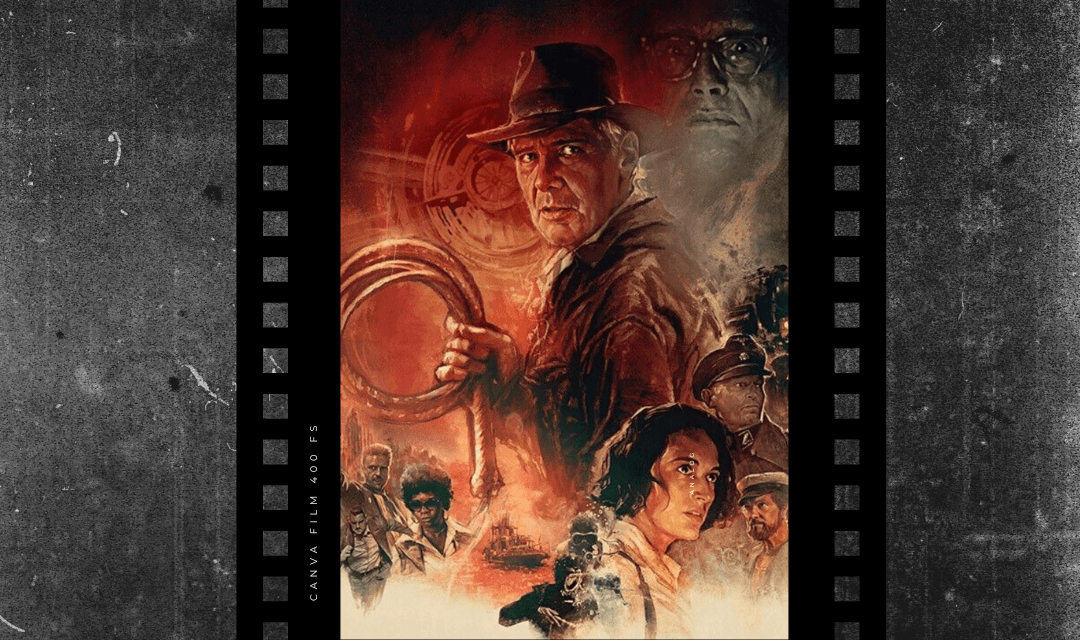Few actors have had the luxury of being able to stick with and develop a character for over forty years, yet there is a sense in which Harrison Ford is Indiana Jones. In many ways, among the pantheon of iconic characters Ford has played over the last half-century (including Han Solo, Rick Deckard, John Book, Jack Ryan, Dr. Richard Kimble), Jones will form the most enduring part of his legacy. Solo alone is engraved upon the flipside of that coin, but according to Ford himself, “he’s certainly a much less interesting character than Indiana Jones. The breadth of his story utility was never extensive. He was the foil between the other more compelling elements of the film [Star Wars], between the sage old warrior and the young hero.”3 In other words, of the actor’s two most significant characters, Jones wins the day by virtue of being able to carry his own story. And with the release of Indiana Jones and the Dial of Destiny, that story has been told. Though he will likely be remembered for his gumption and ability to give as good as he gets, what makes Jones a worthwhile character goes beyond whip-smart dialogue and cleverly conceived action set pieces. Jones’s story is as much one of personal growth and finding treasure in the ordinary as it is about punching Nazis in pursuit of lost artifacts.
That makes the character and his story worth paying attention to, especially for Christians navigating a culture in which “progress” is heralded as the ultimate goal. Good Ol’ Fashioned Heroism. Heroes are never going out of style. History and mythology have taught us that time and again. But the kinds of heroes we tell stories about have changed, and well beyond the trappings of cultural differences. If the late twentieth-century produced the anti-hero, the early twenty-first produced the self-conscious hero.4 Embodied by the likes of Tom Holland’s Peter Parker, the ironic protagonist who feels the need to constantly “wink” at the audience has come to dominate the zeitgeist.
Couple this with the fact that changing cultural norms tend to call for reevaluations of traditional masculine (and therefore “heroic”) values. Western culture has moved beyond the hero and the anti-hero, to heroes who are not allowed to have flaws, who must wink at the audience to let us know that the people who are writing them know that it is all make-believe anyway, as if audiences might begin — God forbid — to take seriously the narrative and characters put before them. Astounding (but not entirely surprising) is the pendulum swing from the deconstruction of heroes to the castigating of the heroic altogether.
Of course, this walks hand-in-hand with the redefinition of sin from a real transgression of divine law at odds with a baseline morality to, effectively, “indulgence” or “enjoyable naughtiness.” After forty years of storytelling, what makes Jones “old fashioned” is not the fact that he is white, but exactly what Spielberg — one of his creators — says: Indiana Jones is “not a perfect hero.” That category is reserved for one individual in history, Jesus Christ — and His story is told in the pages of Scripture.
This Postmodern Realities episode is a conversation with JOURNAL author Cole Burgett about his online article, “It’s the Mileage: Looking Back on Forty Years with Indiana Jones/Film Review of Indiana Jones and the Dial of Destiny‘” **Editor’s Note: This article contains spoilers for Indiana Jones and the Dial of Destiny.**
When you support the Journal, you join the team of to help provide the resources at equip.org that minister to people worldwide. These resources include our ever growing database of over 1,500 articles, as well as our free Postmodern Realities podcast.
Another way you can support our online articles is by leaving us a tip. A tip is just a small amount, like $3, $5, or $10 which is the cost for some of a latte, lunch out, or coffee drink. To leave a tip, click here
Other recent articles and Postmodern Realities podcasts featuring this author:
Episode 344 Mrs. Davis and the Crisis of Storytelling in the Twenty-First Century
Mrs. Davis TV Series Review and
Episode 340 Finding Family Among the Last of Us
Finding Family Among ‘The Last of Us’
Episode 335 Let Faith Oust Fact: A Review of The Whale
Let Faith Oust Fact: A Review of The Whale
Episode 330 Finding Empathy in the Trenches: A Review of Netflix’s All Quiet on the Western Front
Episode 324 The Way of Family in Avatar: the Way of Water
The Way of Family in Avatar: the Way of Water
